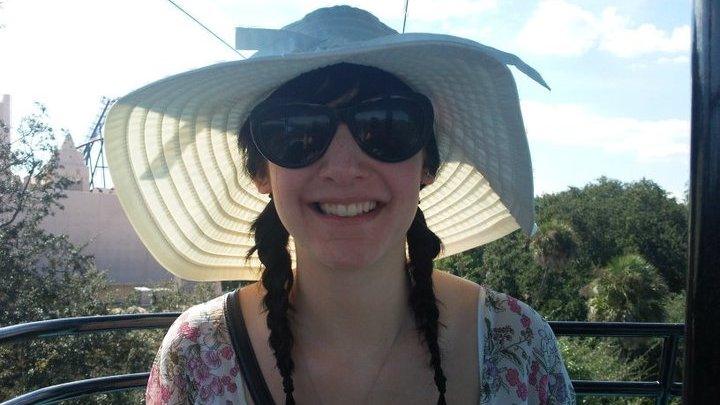Overhanging Jurassic Coast cliff collapses
- Published
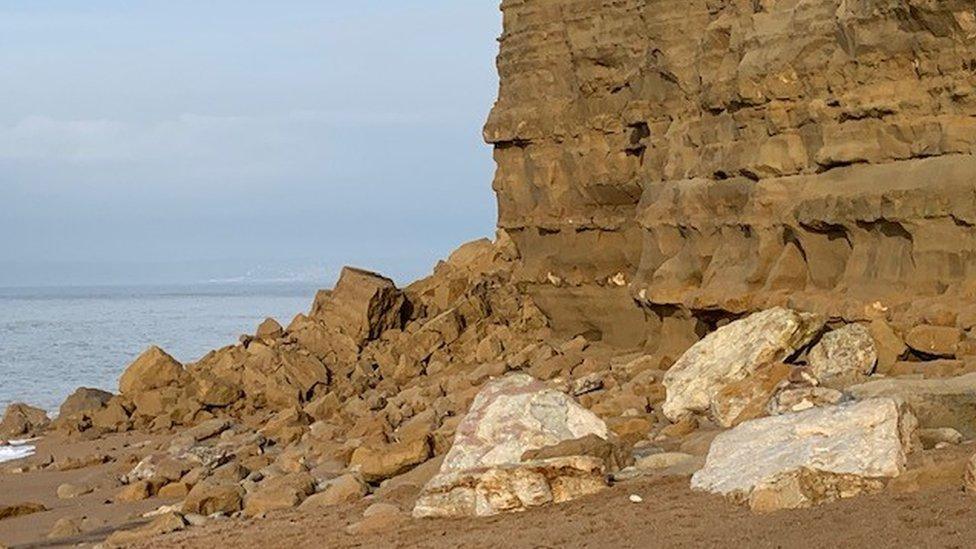
The collapse is thought to have happened overnight
A huge rock fall has changed the face of one of Dorset's most recognisable coastal cliffs.
The overhang at Hive Beach, near Burton Bradstock, collapsed on Thursday, blocking access between Freshwater and Hive Beach.
Dorset Council warned people not to attempt to walk along the beach, adding: "If you try, you will get cut off by the tide."
It said the coast path was not affected.
Ken Seymour, who walks his dog on the beach every day, said: "It's a landmark that's no longer here.
"Everyone comes down here and they have their picnics and, quite foolishly, some of them take shelter under there when it's raining but - no more - it's gone.
"It was an absolute icon really - it was just hanging there for years and years and we knew eventually it was going to collapse and now it's happened it's quite sad.
"That's an absolutely enormous fall - the largest rock I can see there now must be two or three tonnes."
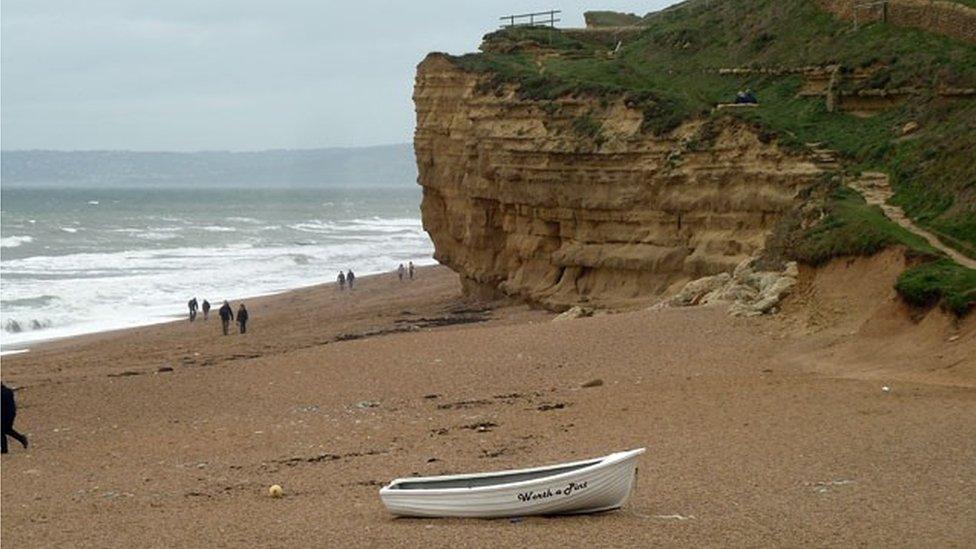
The overhanging cliff was one of the Jurassic Coast's most recognisable features
Rock falls and mud slides are commonplace on Dorset's Jurassic Coast.
In 2012, a woman died when she was buried under hundreds of tonnes of rocks following a landslip on Hive Beach, near Freshwater Holiday Park.
Charlotte Blackman, from Derbyshire, her boyfriend and her father were all buried when the 160ft-high (49m) cliff above them collapsed. The men were pulled free but Ms Blackman was killed.
The Jurassic Coast Trust has urged visitors to keep a safe distance from the cliffs and to pay attention to tide times.
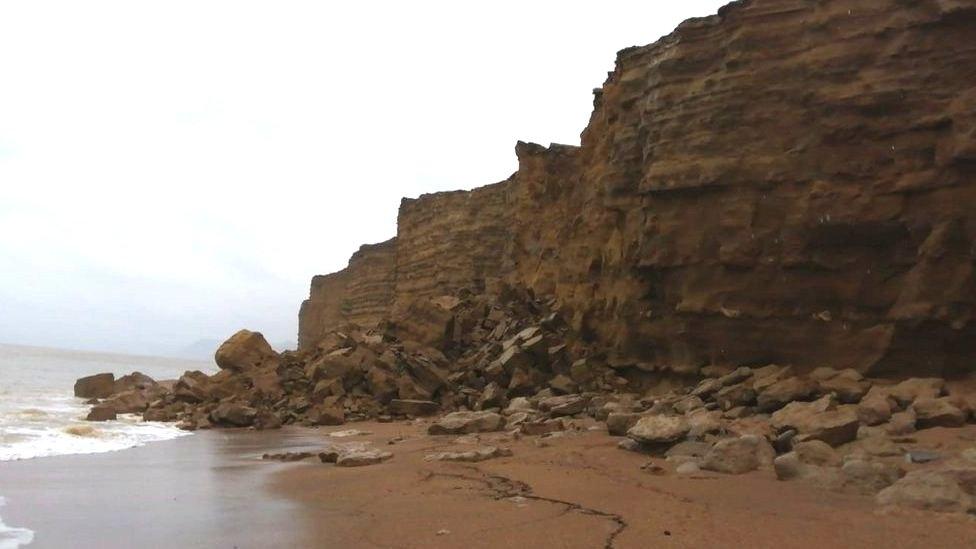
The collapsed cliff is blocking the beach between Hive Beach and Freshwater
- Published29 June 2017
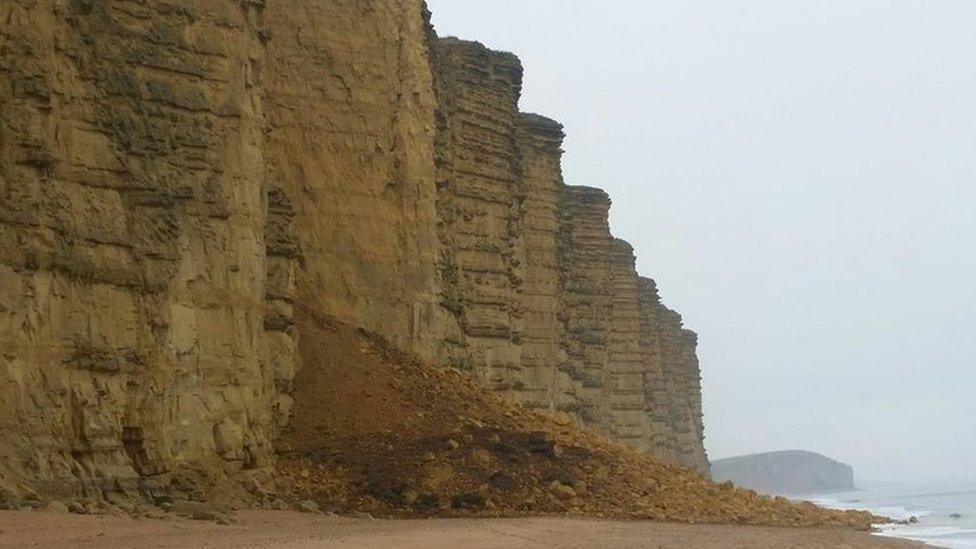
- Published17 January 2014
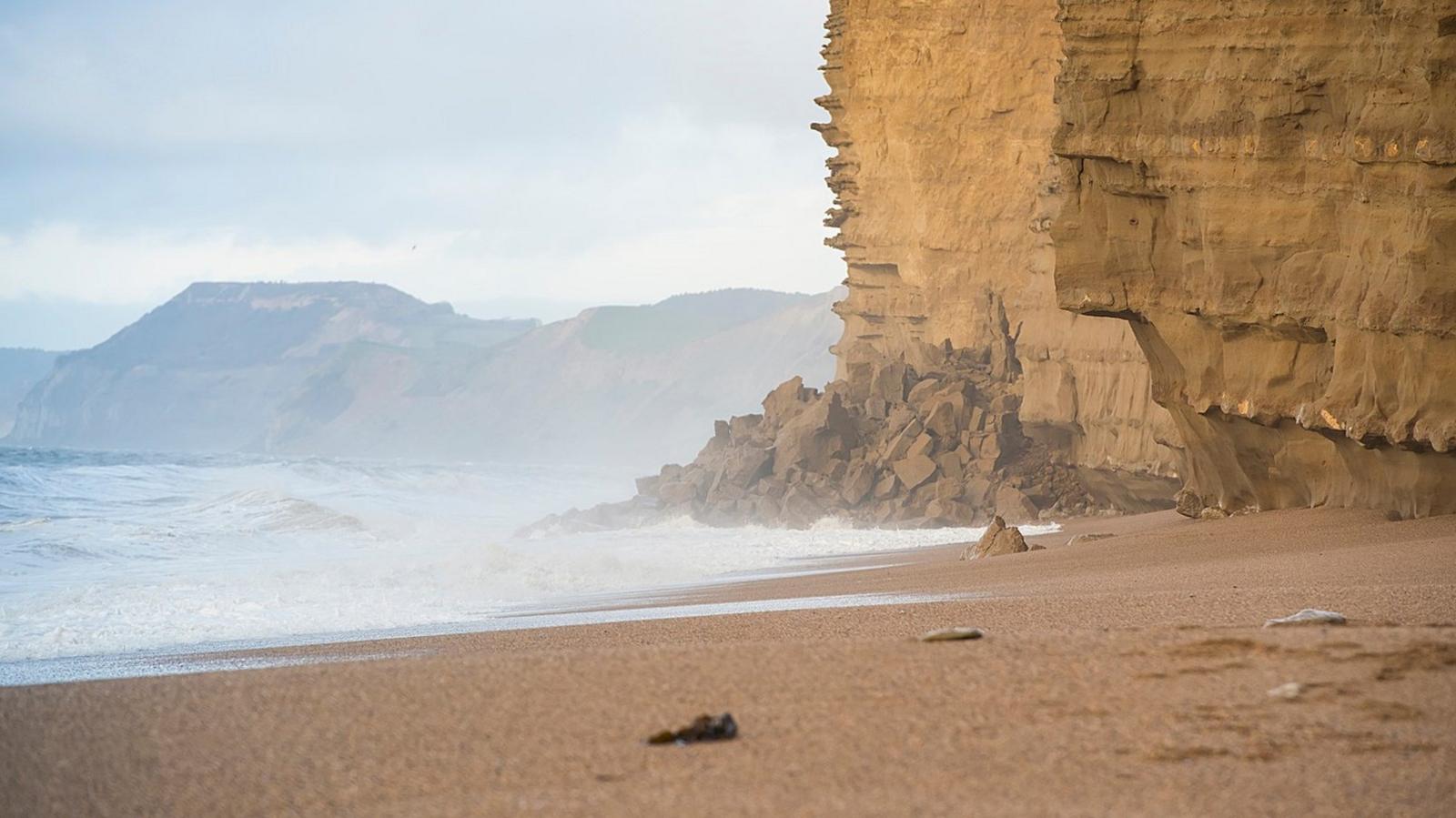
- Published26 July 2012
